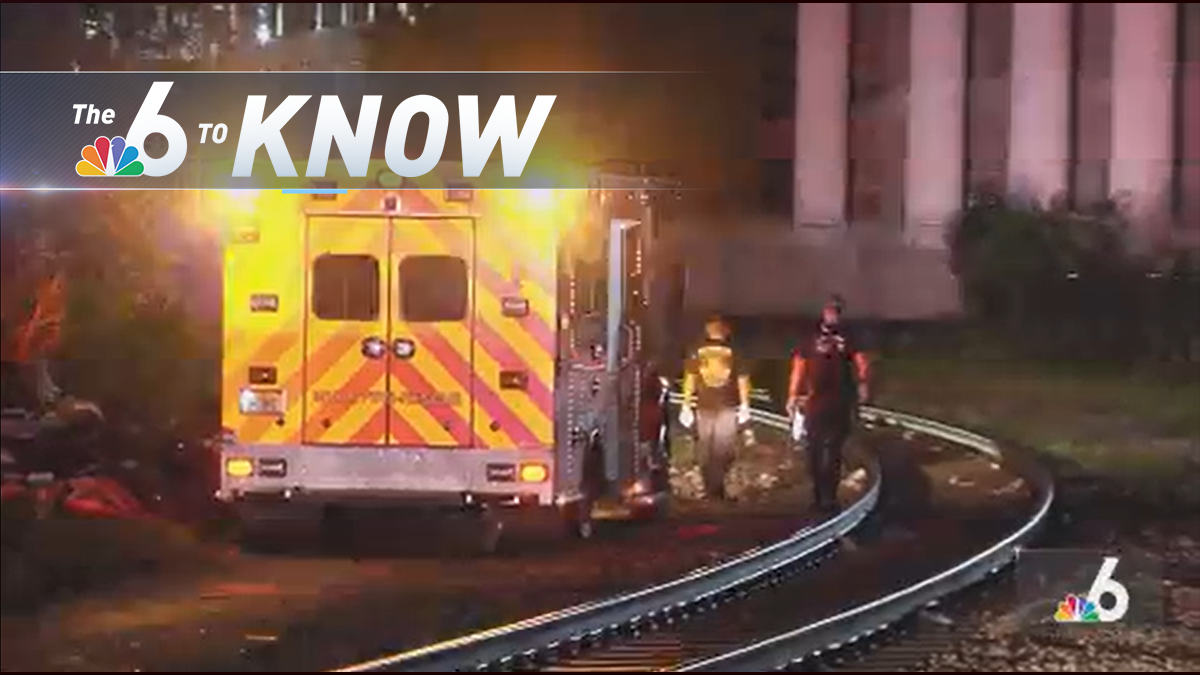Lab-cultivated meat is a growing business, but Florida recently banned the practice. NBC6’s Sophia Hernandez talks to both sides of the great meat debate.
Garfield Jarrett is a military veteran, who after serving overseas returned to school and learned about a veteran farm program from Florida International University.
“With that certificate I was able to approach USDA and get a grant to initially start a farm,” Jarrett said.
Watch NBC6 free wherever you are
That’s how Sol City Farms was born. The farm provides vegetables, eggs, dairy and meat to South Florida since 2014.
“Our larger customer base would definitely be the household, restaurant, then hotels and so forth.”
Get local news you need to know to start your day with NBC 6's News Headlines newsletter.
Jarrett says there’s about 24 cows in one pasture at a time, and it takes about 2 years before the consumer can enjoy the meat. He says that grass-fed beef makes up more than half of his income.
But his money-maker could potentially see some unlikely competition in the future: man-made meat.
According to the Florida Department of Agriculture, the cattle industry brought in more than $546 million to the state in 2020.
Local
Other livestock, brought in more than $327 million.
“It cooks like meat, it smells like meat, it tastes like meat. It’s real meat, it’s just made a different way,” said Thomas Rossmeissl, the head of Marketing for Eat Just, the company behind Good Meat, the first in the world to sell lab-gown, or cultivated meat.
Good Meat started selling in Singapore in December of 2020, and their chicken is now available for retail. And last summer, Good Meat became one of two companies to be USDA and FDA approved to sell their cultivated chicken.
But how exactly is this meat made?
“We start by removing cells from animal, and we put those cells into a bioreactor. It looks like a beer brewery, it’s a large stainless steel vessel, and we feed those cells the same nutrients an animal would feed its own cells, amino acids, lipids, water, nutrients, salt, all the things an animal would feed its own cells. And the cells multiply, and you are able to grow real meat, this isn’t plant-based meat, this is actual meat, just outside of an animal,” explained Rossmeissl.
According to the nonprofit think tank Good Food Institute, about ten years ago a Dutch professor came up with a man-made burger, which was the first instance of cultivated meat.
Pepin Tuma with the think tank says there are currently more than 170 cultivated meat and seafood companies around the world, a sector that has $3.1 billion invested.
But “right now we are just really hoping to not have this industry shut down in it’s infancy," Tuma says.
LAB MEAT BANNED
Last month, Governor Ron DeSantis made Florida the first state to ban lab-grown meat.
“Take the lab grown meat elsewhere, we are not doing that in the state of Florida,” DeSantis said.
According to Documents of the Florida government, the governor claims that the World Economic Forum is “forcing the world to eat lab-grown meat and insects” and telling the world to forgo meat consumption.
But those for cultivated meat, like Tuma, say that’s not the case.
“If cultivated meat becomes more widely available, we are not talking about replacing conventional meat sector, there is always going to be a place for that, no question. But when we are looking at the possibility of by 2050 there is going to be a doubling of demand for protein products, there must be a way to meet that demand. And we don’t want to do that in a way that some are recommending or suggesting which is using the entire land mass of North and South America to raise cattle and livestock. This uses far less land and less water to be able to grow meat in an innovative way.”
Those in Florida’s Agricultural Industry, like Jarrett, are worried that it will impact their business.
"I was grateful for the governor, for doing what he did, kind of like taking the lead, which hopefully a lot more states jump into that. Because it’s like 600,000 years of farming, compared to 3-5 years of lab grown meat or whatever. So of course, it would affect us, and it would kind of put us out of business”, Jarrett said
And other states have followed suit.
Alabama banned lab-grown meat and seafood on May 7th. Iowa’s governor signed a bill prohibiting schools from buying lab grown meat. Federal lawmakers have also been looking at imposing restrictions.
But Rossmeissl don’t believe these bans will last.
“Ultimately, the consumer should make that choice in Florida, what kind of meat they want to purchase. I think it’s ironic that Florida is this beacon of freedom and liberty, and it’s a state that is now letting politicians tell them what meat they can and can’t have.”
Jarrett, who supports vegetable-based products that use farmed vegetables as a substitution for those who can’t consume meat, says there’s enough choice in the marketplace.
Good Meat had a small group sample their product in a restaurant in DC last year, and Rossmeissl says it will take a number of years before their product can be up to scale with conventional meat production.
Their focus now is on scaling the size of the bioreactor and bringing costs down, and hoping that those favoring the other side will soon open up to the idea of more competition.



